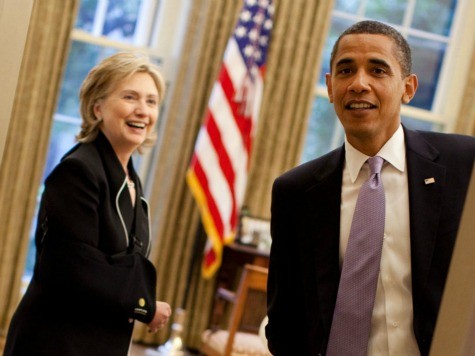
The U.S. State Dept. issued a travel warning telling Americans to avoid Libya two weeks before the deadly attack that killed Ambassador Christopher Stevens and three others. In addition, a recently updated threat assessment for Libya demonstrates the State Department was aware the security situation in Benghazi had become particularly dangerous for diplomats. Despite this, security at the US consulate appears to have been minimal during Ambassador Stevens’ visit.
The US State Department provides travel advisories for nations around the globe which indicate the level of danger in a given area. Its most recent warning about Libya was published August 27, 2012, just fifteen days prior to the 9/11 attacks. The warning reads in part:
The Department of State warns U.S. citizens against all but essentialtravel to Libya. The incidence of violent crime, especiallycarjacking and robbery, has become a seriousproblem. In addition, political violence in the form of assassinationsand vehiclebombs has increased in both Benghazi andTripoli…In addition, political violence,includingcar bombings in Tripoli and assassinations ofmilitary officers and alleged former regime officials in Benghazi, hasincreased.
Foreign Policy covered the warning in an article headlined “State Dept. to Americans: Don’t go to Libya.” Elsewhere on the State Dept. website, a threat assessment for Libya highlights a pattern of threats toward diplomats in Benghazi by “extremist groups”:
InJune 2012, an unknown group of attackersdetonated an improvised explosive device outside the compound of theU.S. embassy’soffice in Benghazi. There have also been attackson diplomatic vehicle convoys. Any U.S. citizen who decides to traveltoLibya should maintain a strong security postureby being aware of surroundings, avoiding crowds and demonstrations,keepinga low profile, and varying times and routes forall required travel.
News reports from the five months before the attack on the US Consulate show a slew of attacks on western outposts and diplomats in Benghazi:
- April 10, 2012 – A convoy carrying the head of the UN mission to Libya on a visit to Benghazi is attacked with an improvised bomb. The bomb misses its target by a few meters but leaves “a small hole in the road.”
- May 22, 2012 – A rocket propelled grenade is fired at the compound of the Red Cross in Benghazi.
- June 6, 2012 – A bomb is thrown at the gate outside the US Consulate in Benghazi. This is the same location where the deadly attack that killed four Americans took place on 9/11.
- June 11, 2012 – A rocket propelled grenade is fired at a convoy carrying the British ambassador as he approaches his consulate in Benghazi. The ambassador is unharmed but two bodyguards are injured.
- July 31, 2012 – Seven Red Crescent officials are kidnapped by a Benghazi militia.
- September 2, 2012 – A bomb is placed in the car of a Libyan intelligence official. It explodes on one of the busiest streets in Benghazi, killing him.
Despite awareness of this pattern, the consulate in Benghazi did not maintain a strong security posture as advised by the State Department itself. On the contrary, the consulate appears to have had minimal security, with as few as four Libyan guards. Once the attack began on the night of 9/11, the perimeter was breached within 15 minutes.
The argument about what happened in Benghazi has devolved into a squabble over whether or not the US had advance warning of the attack. Libyan officials say the US did have warning while the Obama administration insists they did not and claims the attack was spontaneous.
The administration’s claim appears to be increasingly unlikely, but whether the attack was spontaneous or not, it was not unpredictable. The fact that traveling diplomats had been a target for militants in Benghazi should have been a red flag that security needed to increase during Ambassador Stevens’ visit to the area. Whoever is responsible for failing to heed the State Department’s own warnings needs to be held accountable for the failure.

COMMENTS
Please let us know if you're having issues with commenting.